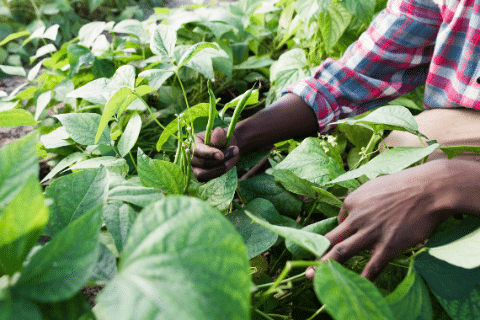Transforming food systems to improve human, animal, and planetary health.
Food is a vastly complex issue, so it requires a systems-thinking approach.
Food has been a life force for our families, cultures, and societies for millennia. But profound changes in the way food is grown, processed, distributed, consumed, and wasted over the last several decades have led to increasing threats to a future of food that is sustainable, equitable, and secure. Today, food systems are at the center of many of the critical challenges we face — from the COVID-19 pandemic to climate change.
To understand all the interrelated economic, ecological, and social drivers of today’s food systems, we apply systems thinking. Thinking in systems enables us to fully understand system dynamics, anticipate system behaviors and interactions, and ultimately to identify opportunities for transformation.

Actionable Frameworks for Transformation
Frameworks facilitate new ways of thinking about how to create better systems. They help us understand, analyze, and shift systems towards better human, animal, and planetary health.
Explore our frameworksStories of Transformation


